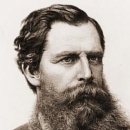Nation Events (Small)
26 posts
• Page 1 of 3 • 1, 2, 3
Nation Events (Small)
If you are King, you should get an alert if something significant has happened to a port under your control, lets say someone cast 2 Black Deaths on you port, you should get an alert saying, "Your Highness, 2 million people have died of plague in Goroum," same thing if someone cast transport immigrants. A king would get an alert for every port, while a governor would get an alert for the port the control. This should also happen if conspiracy has been cast against your port.
"Dead Mod tell no tales"
Afk, looking for that palm tree island beach of Legends.
Afk, looking for that palm tree island beach of Legends.
-

Roileon - Posts: 1274
- Joined: Sun Apr 08, 2012 12:39 am
Re: [Approved] Kings and Governor Port alerts
Great idea. We just need to assemble a full list of actions now (with the proposed messages if you like).
Proposed Alerts:
Black Death - Your Highness, (X amount) people have died of a terrible plague in (Port).
Alternative - Your Highness, (X amount) people have died of a terrible plague in (Port). Perhaps we should call in the specialist to see what can be done.
Transporting Immingrants - You Highness, (X amount) has decided to join our nation at (Port)
For Governor - My Lord, (X amount) people have joined our settlement in (Port)
Conspiracy - Your Highness, someone in (port) is conspiring against our proud nation!
Alternative - Your Highness, someone in (port) has spread some vile rumors about are nation. Our Nations Power/Jurisdiction/Domination has severely decreased.
When someone becomes a Marquise on that nation - Your Highness, Lord (Name) has become a marquis of our nation.
They can also be used for other noble title.
**Your Highness, = King
** My Lord, = Governor
How:
-Every alert will come with a random delay (45 minutes to 180 minutes)
-Alerts will be like Messages,guild,news,etc events
-Alerts will be added in the national log (it will be created for this purpose)
-You will be able to opt-in or opt-out for these events (by default: ON)
-Anyone in the council will receive such requests.
Proposed Alerts:
Black Death - Your Highness, (X amount) people have died of a terrible plague in (Port).
Alternative - Your Highness, (X amount) people have died of a terrible plague in (Port). Perhaps we should call in the specialist to see what can be done.
Transporting Immingrants - You Highness, (X amount) has decided to join our nation at (Port)
For Governor - My Lord, (X amount) people have joined our settlement in (Port)
Conspiracy - Your Highness, someone in (port) is conspiring against our proud nation!
Alternative - Your Highness, someone in (port) has spread some vile rumors about are nation. Our Nations Power/Jurisdiction/Domination has severely decreased.
When someone becomes a Marquise on that nation - Your Highness, Lord (Name) has become a marquis of our nation.
They can also be used for other noble title.
**Your Highness, = King
** My Lord, = Governor
How:
-Every alert will come with a random delay (45 minutes to 180 minutes)
-Alerts will be like Messages,guild,news,etc events
-Alerts will be added in the national log (it will be created for this purpose)
-You will be able to opt-in or opt-out for these events (by default: ON)
-Anyone in the council will receive such requests.
-

Captain Jack - Project Coordinator
- Posts: 4043
- Joined: Tue Feb 08, 2011 1:12 am
- Location: Pania
Re: [Approved] Kings and Governor Port alerts
I agree good idea. Perhaps population increase or decrease as Roi suggested, tax base and daily gold made from Port, Perhaps local nobles will seek help with issues that require the rare expenditure of gold or increasing influence and provide specialized benefits to those controlling a port.
-

Rolando - Posts: 395
- Joined: Wed May 01, 2013 7:40 am
Re: [Approved] Kings and Governor Port alerts
Black Death - Your Highness, (X amount) people have died of a terrible plague in (Port).
Alternative - Your Highness, (X amount) people have died of a terrible plague in (Port). Perhaps we should call in the specialist to see what can be done.
Transporting Immingrants - You Highness, (X amount) has decided to join our nation at (Port)
For Governor - Me Lord, (X amount) has decided to join our settlement here in (Port)
Conspiracy - Your Highness, someone in (port) is spreading ill rumours about our nation
Alternative - Your Highness, someone in (port) has spread some vile rumours about are nation. Our Nations Power/Jurisdiction/Domination has severely decreased.
When someone becomes a Marquise on that nation - Your Highness, Lord (Name) has become a marquis of our nation.
^^ they can also be used for other noble title.
**Your Highness, = King
** Me Lord, = Governor
Alternative - Your Highness, (X amount) people have died of a terrible plague in (Port). Perhaps we should call in the specialist to see what can be done.
Transporting Immingrants - You Highness, (X amount) has decided to join our nation at (Port)
For Governor - Me Lord, (X amount) has decided to join our settlement here in (Port)
Conspiracy - Your Highness, someone in (port) is spreading ill rumours about our nation
Alternative - Your Highness, someone in (port) has spread some vile rumours about are nation. Our Nations Power/Jurisdiction/Domination has severely decreased.
When someone becomes a Marquise on that nation - Your Highness, Lord (Name) has become a marquis of our nation.
^^ they can also be used for other noble title.
**Your Highness, = King
** Me Lord, = Governor
Last edited by Warlord on Wed Jul 03, 2013 9:48 pm, edited 1 time in total.
- Warlord
- Posts: 3
- Joined: Tue Apr 16, 2013 12:40 pm
Re: [Approved] Kings and Governor Port alerts
We got a new star here 
Thanks Warlord and welcome to the forums
Thanks Warlord and welcome to the forums
-

Captain Jack - Project Coordinator
- Posts: 4043
- Joined: Tue Feb 08, 2011 1:12 am
- Location: Pania
Re: [Approved] Kings and Governor Port alerts
Warlord wrote:Black Death - Your Highness, (X amount) people have died of a terrible plague in (Port).
Alternative - Your Highness, (X amount) people have died of a terrible plague in (Port). Perhaps we should call in the specialist to see what can be done.
Transporting Immingrants - You Highness, (X amount) has decided to join our nation at (Port)
For Governor - Me Lord, (X amount) has decided to join our settlement here in (Port)
Conspiracy - Your Highness, someone in (port) is ill spreading rumours about our nation
Alternative - Your Highness, somone in (port) has spread some vile rumours about are nation. Our Nations Power/Jurisdiction/Domination has severely decreased.
When someone becomes a Marquise on that nation - Your Highness, Lord (Name) has become a marquis of our nation.
^^ they can also be used for other noble title.
**Your Highness, = King
** Me Lord, = Governor
I completely agree
"Dead Mod tell no tales"
Afk, looking for that palm tree island beach of Legends.
Afk, looking for that palm tree island beach of Legends.
-

Roileon - Posts: 1274
- Joined: Sun Apr 08, 2012 12:39 am
Re: [Approved] Kings and Governor Port alerts
It shouldn't be "Me Lord", it should be My Lord.
"Those who stand for nothing,
Fall for anything"
-Alexander Hamilton
Fall for anything"
-Alexander Hamilton
-

Edward_Teach - Posts: 271
- Joined: Sun Mar 03, 2013 2:11 am
Re: [Approved] Kings and Governor Port alerts
i think someones been watching game of thrones
I'm a canny one
Scourge of the Seven Seas
Sink anyone's galleon
To murder my enemies
Whether he's been stabbed in a back street
Or a vast sea attack by the Black Flag fleet
Scourge of the Seven Seas
Sink anyone's galleon
To murder my enemies
Whether he's been stabbed in a back street
Or a vast sea attack by the Black Flag fleet
-

Spastic - Posts: 345
- Joined: Wed May 30, 2012 6:54 am
Re: [Approved] Kings and Governor Port alerts
Maybe  But I thought anyone who has watched a movie set in a Medieval, or the age of Gunpowder, knew that.
But I thought anyone who has watched a movie set in a Medieval, or the age of Gunpowder, knew that.
"Those who stand for nothing,
Fall for anything"
-Alexander Hamilton
Fall for anything"
-Alexander Hamilton
-

Edward_Teach - Posts: 271
- Joined: Sun Mar 03, 2013 2:11 am
Re: [Approved] Kings and Governor Port alerts
Hope this helps...
18th Century Greetings.
by: Paul Dickfoss
We take great pride in the clothing we ware but our organization spends little effort attempting to speak like the people of the 18th century. It is the sites, sounds and smells the public take with them more than what we tell them. One simple step towards recreating the proper speech is to greet people as was done in the 18th century.
In attempting to recreate speech I first thought of using songs as a way to do this. Songs were passed into and out of print over hundreds of years and therefore retain speech from earlier times. An example of this is that in the late 18th century many English ballads still refer to a shift as a smock. None, I have read, refer to a shift as a chemise.
A better place to find greetings is in plays of the time. In this paper I have narrowed out greetings from five unabridged comedies. Two from the restoration; The Country Wife, 1673 and The Way of the World, 1700, and three from the 18th century; The Beggar’s Opera, 1728, She Stoops to Conquer, 1773 and The School for Scandal, 1777. All of these plays were popular at the time and take place in London and four deal with the upper class: The Beggar’s Opera deals with the lower sort.
Most of the plays have servants enter and leave a room. Servants are always ignored by their betters unless speech is required. If they do speak to their masters they never greet. The speech is strictly functional. An example would be from a coachman to a lady, “Is Master Petulant here, mistress [Atkinson, 1958, p. 104]?” Or from a servant, “I beg your pardon, sir, but I thought you would not choose Sir Peter to come up without announcing him [Atkinson, 1958, p. 280].” An exception is when a servant greets guests at the door, “Welcome, gentlemen, very welcome [Atkinson, 1958, p. 182].”
The greetings I found are listed in the table below. Out of over 30 greetings by far the most common was (15 greetings) “your humble servant” or some variation thereof. This was also a common way to sign a name at the end of a letter. The second most common is (5 greetings) “welcome” when someone enters your house. Two greet with “how do you do?” and two refer to the hand either to shake a man’s or kiss a lady’s.
There is only one apparent change from the late 17th to the 18th century. There is more variation in the greetings in the 18th century but this may be more due to the sample size. Only 10 greetings are from the restoration, and over 16 from the 18th century.
The four greetings in The Beggar’s Opera are all very similar to those used by those of fashion. This suggests the greetings used by the lower sort in London were similar to those of the wealthy.
It should be noted that the United States 20th century’s most common greetings “hi” and “hello” are not found in the 18th century at all. Hello was first written in 1893 (according to Webster’s dictionary—this coincides with the beginning of the telephone). “Hi” must have been very uncommon for a long time since its first occurrence as a greeting in the 15th century.
Greetings used in the late 17th and 18th centuries.
(Replies are only provided if they shed light on the greeting given.‚
Greeting
Reply
Play Page
“How is’t, sparks?”
How is’t?
Country 11
“Gentlemen, your humble servant.”
“Well, jack, by thy long absence…”
Country 13
“Oh my dear, bud, welcome home!…”
—
Country 17
“Your servant, sir…”
—
Country 24
“Madam, your humble servant, a happy day to you and to us all.”
“Amen.” and “Who have we here?
Country 49
“Oh, your servant, sir -- …”
—
Country 66
“Horner, your servant; …”
—
Country 85
“Nephew, you are welcome.”
“Aunt, your servant.”
World 133
“Sir Wilfull, your most faithful servant.”
“Cousin, give me your hand [to shake man to man].”
World 133
“Cousin Witwoud, your servant: Mr. Petulant, your servant; nephew, you are welcome again…”
—
World 133
“Aunt, your servant.”
—
World 157
“Gentlemen, well met. . . .”
—
Beggar’s 12
“Noble Captain, you are welcome…”
—
Beggar’s 16
“Dear Mrs. Dye, your Servant One may know by your Kiss, that your Ginn is excellent.”
“I was always very curious in my Liquors.”
Beggar’s 26
“Dear Madam, your Servant…”
—
Beggar’s 27
“Welcome, gentlemen, very welcome. This way.” [says a servant]
“welcome once more, Charles [an equal not the servant]…”
Conquer 182
”My dear Hastings! …to what accident am I to ascribe this happy meeting?”
—
Conquer 188
“My dear friend, how have you managed with your mother?…”
—
Conquer 198
“My dear Lady Sneerwell, how do you do today?”
“Mr. Snake, your most obedient.”
Scandal 237
“Maria, my dear, how do you do?…”
—
Scandal 238
“My dear Lady Sneerwell, how have you been this century?…”
“Just so, indeed, ma’am.”
Scandal 239
“Lady Sneerwell, I kiss your hand.”
—
Scandal 241
“Oh! Sir Peter, your servant: how is it with you, sir?”
“Very bad, Master Rowley, very bad…”
Scandal 245
“Ladies, your most obedient.”
“I am rejoiced you are come, Sir Peter…”
Scandal 251
“Sir, I beg you ten thousand pardons for keeping you… Mr. Stanley, I presume?”
“At your service.”
Scandal 290
“Mr. Surface, your servant:…”
“Always happy to see Mr. Rowley.”
Scandal 292
“My old friend, Sir Oliver — hey!…”
Scandal 301
SOURCES:
Atkinson, Brooks, 1958, Four Great Comedies of the restoration and 18th century; Bantam Books, NY.
Gay, John, The Beggar’s Opera, originally published in 1728; Transcribed by Richard Bear, as found on http://bralyn.net/etext/literature/john.gay/beggars.txt
Webster’s Ninth New Collegiate Dictionary; Merriam-Webster Inc. Springfield, MA. 1983
18th Century Greetings.
by: Paul Dickfoss
We take great pride in the clothing we ware but our organization spends little effort attempting to speak like the people of the 18th century. It is the sites, sounds and smells the public take with them more than what we tell them. One simple step towards recreating the proper speech is to greet people as was done in the 18th century.
In attempting to recreate speech I first thought of using songs as a way to do this. Songs were passed into and out of print over hundreds of years and therefore retain speech from earlier times. An example of this is that in the late 18th century many English ballads still refer to a shift as a smock. None, I have read, refer to a shift as a chemise.
A better place to find greetings is in plays of the time. In this paper I have narrowed out greetings from five unabridged comedies. Two from the restoration; The Country Wife, 1673 and The Way of the World, 1700, and three from the 18th century; The Beggar’s Opera, 1728, She Stoops to Conquer, 1773 and The School for Scandal, 1777. All of these plays were popular at the time and take place in London and four deal with the upper class: The Beggar’s Opera deals with the lower sort.
Most of the plays have servants enter and leave a room. Servants are always ignored by their betters unless speech is required. If they do speak to their masters they never greet. The speech is strictly functional. An example would be from a coachman to a lady, “Is Master Petulant here, mistress [Atkinson, 1958, p. 104]?” Or from a servant, “I beg your pardon, sir, but I thought you would not choose Sir Peter to come up without announcing him [Atkinson, 1958, p. 280].” An exception is when a servant greets guests at the door, “Welcome, gentlemen, very welcome [Atkinson, 1958, p. 182].”
The greetings I found are listed in the table below. Out of over 30 greetings by far the most common was (15 greetings) “your humble servant” or some variation thereof. This was also a common way to sign a name at the end of a letter. The second most common is (5 greetings) “welcome” when someone enters your house. Two greet with “how do you do?” and two refer to the hand either to shake a man’s or kiss a lady’s.
There is only one apparent change from the late 17th to the 18th century. There is more variation in the greetings in the 18th century but this may be more due to the sample size. Only 10 greetings are from the restoration, and over 16 from the 18th century.
The four greetings in The Beggar’s Opera are all very similar to those used by those of fashion. This suggests the greetings used by the lower sort in London were similar to those of the wealthy.
It should be noted that the United States 20th century’s most common greetings “hi” and “hello” are not found in the 18th century at all. Hello was first written in 1893 (according to Webster’s dictionary—this coincides with the beginning of the telephone). “Hi” must have been very uncommon for a long time since its first occurrence as a greeting in the 15th century.
Greetings used in the late 17th and 18th centuries.
(Replies are only provided if they shed light on the greeting given.‚
Greeting
Reply
Play Page
“How is’t, sparks?”
How is’t?
Country 11
“Gentlemen, your humble servant.”
“Well, jack, by thy long absence…”
Country 13
“Oh my dear, bud, welcome home!…”
—
Country 17
“Your servant, sir…”
—
Country 24
“Madam, your humble servant, a happy day to you and to us all.”
“Amen.” and “Who have we here?
Country 49
“Oh, your servant, sir -- …”
—
Country 66
“Horner, your servant; …”
—
Country 85
“Nephew, you are welcome.”
“Aunt, your servant.”
World 133
“Sir Wilfull, your most faithful servant.”
“Cousin, give me your hand [to shake man to man].”
World 133
“Cousin Witwoud, your servant: Mr. Petulant, your servant; nephew, you are welcome again…”
—
World 133
“Aunt, your servant.”
—
World 157
“Gentlemen, well met. . . .”
—
Beggar’s 12
“Noble Captain, you are welcome…”
—
Beggar’s 16
“Dear Mrs. Dye, your Servant One may know by your Kiss, that your Ginn is excellent.”
“I was always very curious in my Liquors.”
Beggar’s 26
“Dear Madam, your Servant…”
—
Beggar’s 27
“Welcome, gentlemen, very welcome. This way.” [says a servant]
“welcome once more, Charles [an equal not the servant]…”
Conquer 182
”My dear Hastings! …to what accident am I to ascribe this happy meeting?”
—
Conquer 188
“My dear friend, how have you managed with your mother?…”
—
Conquer 198
“My dear Lady Sneerwell, how do you do today?”
“Mr. Snake, your most obedient.”
Scandal 237
“Maria, my dear, how do you do?…”
—
Scandal 238
“My dear Lady Sneerwell, how have you been this century?…”
“Just so, indeed, ma’am.”
Scandal 239
“Lady Sneerwell, I kiss your hand.”
—
Scandal 241
“Oh! Sir Peter, your servant: how is it with you, sir?”
“Very bad, Master Rowley, very bad…”
Scandal 245
“Ladies, your most obedient.”
“I am rejoiced you are come, Sir Peter…”
Scandal 251
“Sir, I beg you ten thousand pardons for keeping you… Mr. Stanley, I presume?”
“At your service.”
Scandal 290
“Mr. Surface, your servant:…”
“Always happy to see Mr. Rowley.”
Scandal 292
“My old friend, Sir Oliver — hey!…”
Scandal 301
SOURCES:
Atkinson, Brooks, 1958, Four Great Comedies of the restoration and 18th century; Bantam Books, NY.
Gay, John, The Beggar’s Opera, originally published in 1728; Transcribed by Richard Bear, as found on http://bralyn.net/etext/literature/john.gay/beggars.txt
Webster’s Ninth New Collegiate Dictionary; Merriam-Webster Inc. Springfield, MA. 1983
-

Rolando - Posts: 395
- Joined: Wed May 01, 2013 7:40 am
26 posts
• Page 1 of 3 • 1, 2, 3
Powered by phpBB © 2000, 2002, 2005, 2007 phpBB Group
Design by PiratesGlory.com
Design by PiratesGlory.com
